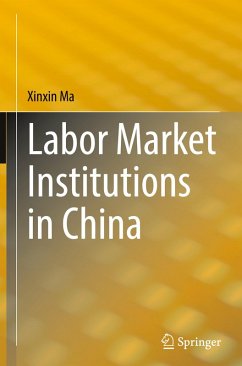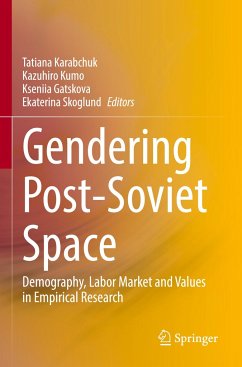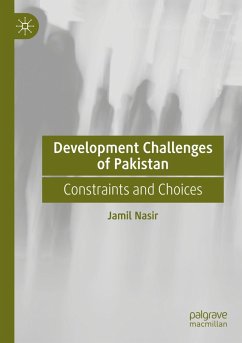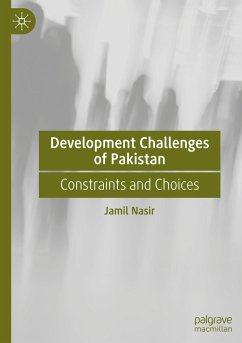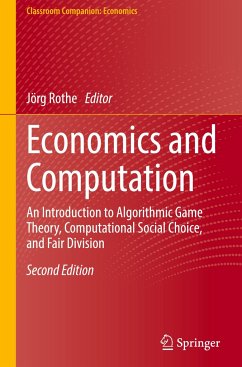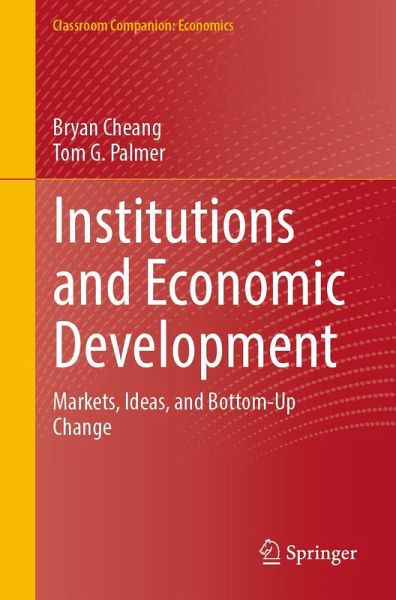
Institutions and Economic Development
Markets, Ideas, and Bottom-Up Change

PAYBACK Punkte
27 °P sammeln!
This book is a survey of the field of development studies from a political economy perspective. It first reviews the academic literature on development and highlights the fundamental importance of institutions and social values, over and above other alternative theories, as determinants in long-run development. In this context, the book draws from the works of Nobel Laureates Douglass North, F.A. Hayek and Elinor Ostrom, and argues that the ingredients of property rights, the rule of law, and market freedoms are essential in generating socio-economic progress. Successful reforms however are no...
This book is a survey of the field of development studies from a political economy perspective. It first reviews the academic literature on development and highlights the fundamental importance of institutions and social values, over and above other alternative theories, as determinants in long-run development. In this context, the book draws from the works of Nobel Laureates Douglass North, F.A. Hayek and Elinor Ostrom, and argues that the ingredients of property rights, the rule of law, and market freedoms are essential in generating socio-economic progress.
Successful reforms however are not simply a function of constructing formal institutions, but must cohere with the social values, norms, and cultural commitments of local communities. It is in this spirit that the book theorises on the oft-neglected role that political entrepreneurs play in driving endogenous institutional change. Specifically, this book integrates the theoretical discussion on market-driven development with a range of case studies from around the world, featuring the bottom-up efforts of local change agents to pursue institutional reforms and changes in social opinion.
Successful reforms however are not simply a function of constructing formal institutions, but must cohere with the social values, norms, and cultural commitments of local communities. It is in this spirit that the book theorises on the oft-neglected role that political entrepreneurs play in driving endogenous institutional change. Specifically, this book integrates the theoretical discussion on market-driven development with a range of case studies from around the world, featuring the bottom-up efforts of local change agents to pursue institutional reforms and changes in social opinion.



